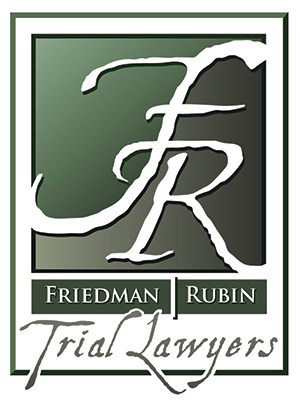Providence “Strikes Out” in Fight to Keep Money Belonging to Injured Employees
Seattle, WA
After he was severely injured in a motorcycle accident, David Benson received a demand from his health insurer, Providence Health & Services (“Providence”), for 100% of any settlement he obtained from the other driver to reimburse itself for health benefits it paid to cover David’s hospitalization and medical treatment. Given the small liability policy carried by the other driver, David would have received nothing for his lost wages, pain and suffering or disability. While Washington law requires an injured party to be “made whole” before an insurer can demand any reimbursement, Providence argued that Washington law did not apply because David’s health coverage was provided as an employee benefit through his wife’s job at Providence Hospital and Providence had elected to be governed by ERISA, a Federal law which supersedes many state laws protecting workers and insureds.
David’s attorney, David Dawson, resisted Providence’s demand relying on US District Judge Ronald B. Leighton’s holding in Rinehart v. Life Insurance Company of America, obtained by FR’s Ken Friedman and Lincoln Sieler. In April, 2009, Judge Leighton had held that Providence’s health plan was an ERISA exempt “church plan”. Providence countered that despite the Rinehart decision, which it claimed was wrongly decided, its health plan was governed by ERISA because it had since formally elected to be governed by ERISA and further argued that its election operated retroactively. Providence then challenged David’s attorney to have his case be the one to test Judge Leighton’s holding in Rinehart. David’s attorney contacted FR attorneys Ken Friedman and Lincoln Sieler, who happily accepted Providence’s challenge.
After an initial adverse ruling in King County Superior Court, Providence removed the case to Federal Court to press its ERISA argument. On November 30, 2010, after more than a year of litigation, US District Court Judge Thomas S. Zilly ruled in David’s favor finding that the employee welfare plan sponsored by Providence was indeed a “church plan”, that Providence did not elect to have the plan governed by ERISA until after David’s claims against it arose, and that Providence’s ERISA election did not operate retroactively. Judge Zilly concluded:
The defendants in this case come before the Court with a two-strike count. On two previous occasions, the applicability of ERISA’s church plan exemption to PN 501 has been decided against the defendants. Judge Leighton called the first strike in Rinehart, 2009 WL 995715 at *3, holding that PN 501 was a church plan. Although not parties in that action, the defendants were “at-bat.” Prior to removal in this case, State Superior Court Judge Doyle called thesecond strike. See King County Superior Court Cause No. 09-2-35792-7 SEA. Benson has delivered the third pitch, arguing that ERISA does not apply because PN 501 is a church plan. For the reasons set forth above, the Court agrees. Strike three! ERISA does not apply and the defendants have failed to meet their burden to show that this Court has subject matter jurisdiction on removal. (Emphasis added).
Judge Zilly’s ruling permits the lawsuit to return to King County Superior Court, where FR will ask the court to certify Mr. Benson’s lawsuit as a class action for the benefit of all persons from whom Providence wrongfully received reimbursement. To read Judge Zilly’s entire opinion click here.
This decision has important implications for employees with prior injury claims at all facilities run by Providence. Plan members generally include employees, spouses and dependents of any Providence entity. Providence Health & Services was founded and continues to be sponsored by the Sisters of Providence, a religious order of the Catholic Church. It includes 26 hospitals, more than 35 non-acute facilities, physician clinics, a health plan, a liberal arts university and a high school. It includes approximately 45,000 employees. The system office is located in Seattle, Washington.
Ken Friedman and Lincoln Sieler of Friedman | Rubin and Jeff Thomas of Gordon, Tilden, Thomas & Cordell, LLP, represent David Benson in the pending action.
